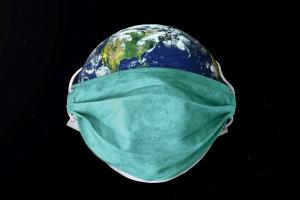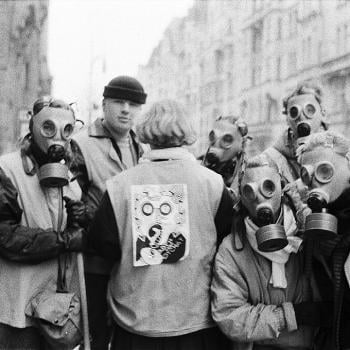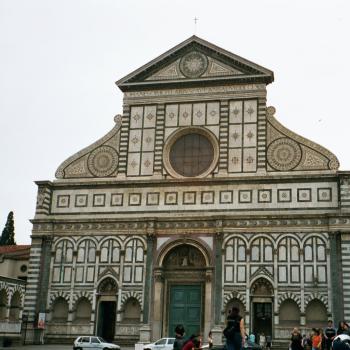
The COVID19 pandemic has required us to reconsider the way we live in the world and how we interact with each other. We have learned that we cannot just think about ourselves, but rather, what we do can and will affect others. If we do not take precautions, such as getting a COVID19 vaccine, wear masks and socially distance ourselves, we not only find ourselves more likely to become infected with COVID19, we also risk infecting others through our carelessness. Selfishness and negligence have made the pandemic worse than it should have been. People have rejected safety precaution after safety precaution because of the inconvenience those precautions would have had on their lives, showing not only that they do not care for their neighbors, they are not wise enough to care for themselves. This revelation, however, should not be surprising, because it is also the explanation for climate change and our inability to engage it as we should: people do not want to be told what to do if they view it as a major inconvenience, ignoring that such inconveniences would be minor in comparison to what they will have to face in the future if they neglect their responsibility to others today. The way society deals with COVID19 reflects the way society deals with climate change. It is often the same people who deny the reality of both, and they do so for the same reason – they do not want to believe what is happening around them because if they did, they would have to change how they live. Pope Francis, understanding this, has pointed out the need to connect ongoing climate change initiatives with our COVID19 responses. We have the opportunity to build a better world, a more just world, where we all realize our responsibility to each other. COVID19 confirms the interdependent reality of the world, the reality which underlies climate science. Just as we have had to act to deal with COVID19, we must also act to deal with climate change before it is too late:
In short, the Covid pandemic taught us about this interdependence, this sharing of the planet. And both global catastrophes, Covid and climate change, show that there is no time to lose. Time is pressing and, as Covid-19 taught us, yes, we have the means to rise up to the challenge. We have the means. It is time to act, we are at the limit.[1]
Hopefully, we will get COVID19 under control. Hopefully, people will realize that if they don’t take the proper precautions, the pandemic will continue and become much worse. It seems this point is easier for many to realize with the pandemic than it is for climate change, because the effects of the pandemic are that much more immediate. Nonetheless, once people come to understand the need to engage the problem, the need to work together to deal with the problem, they will learn an important lesson from COVID19: selfishness makes things worse for everyone, including those who act out of such selfishness. If they do so, then perhaps they will be able to consider the way their actions affect the world around themselves, a point which is necessary for them to realize if they are to have any understanding of climate change. Pavel Florensky, writing from a Soviet Gulag, explained that we must incarnate ourselves in the world, making sure we give back to it more than we take from it. We can’t stay in in some dreamlike theoretical state which ignores what is happening around us:
‘It is better to give than take’. This doesn’t just apply to social relationships, but to the whole world: the line of activity in the world is the source of consciousness and understanding, and without it comes dreams and they always die. A person closed in his subjective sphere, without an influx of nourishment, is slowly falling asleep, even as his dreams fade away. Incarnation is the foundational commandment of life. Incarnation, that is the realization of one’s possibility in the world, the acceptance of the world into oneself and the formulation of matter by itself. Only with Incarnation can we verify our truth and worth, otherwise it is impossible to critique oneself soberly.[2]
Everyone who tries to deny the integral unity which lies behind society, and with it, the integrated reality which connects the world together, will find themselves slowly perishing due to the way they break the world down and destroy it. But if everyone shares with each other what they have, and work for the common good, what one person lacks the other will be able to supply, even as we will work together to supply to the world what it needs in order for it to continue on unharmed. We need sustenance; our reliance on food demonstrates this to us, and so we truly do have to take from the world at large to survive, but this comes with the moral obligation that we take what we have been given, work with it, increase it, multiply it with our efforts, and render back to the world more than we have taken, making sure the world is better as a result of our lives. If we live in and with this spirit, the spirit of self-giving love which recognizes our own needs while also the needs of those around us, and the world at large, we will be able to deal with the crises which come before us and make sure we can overcome them without making things worse. We will be able to deal with COVID19 because we will not think merely about ourselves, but about others, knowing that our own potential lies in the way we can make things better for all and not just ourselves. The same, of course, is true with climate change, for one of the problems with climate change is that we have constantly taken more from the world than we have given back. Ignoring our rooted connected with the world, we have been living a dream which is now slowly turning into a nightmare. It is essential we take Florensky’s incarnational approach to life seriously. The pandemic continues. Climate change continues. Indeed, both have the potential to become much worse if we do not do our part and do what we can to make the world a better place. Scientists continue to warn us that we are at a tipping point with climate change, that the situation is dire and we must deal with it as an emergency, similar to the way the pandemic is an emergency:
On the basis of recent trends in planetary vital signs, we reaffirm the climate emergency declaration and again call for transformative change, which is needed now more than ever to protect life on Earth and remain within as many planetary boundaries as possible. The speed of change is essential, and new climate policies should be part of COVID-19 recovery plans. We must now join together as a global community with a shared sense of urgency, cooperation, and equity.[3]
Pope Francis understand that COVID19 has revealed the way everyone in the world is interconnected. We should see how it has spread highlights the way what happens in one part of the world can and will influence the rest of the world. We have ignored this reality for far too long. The errors of our immediate past should be clear to us now. We have neglected our duty to each other and the world for far too long. With climate change looming before us, we face an existential threat which need not have been. How bad it will become will depend upon the way we deal with it today. Things can be and will be worse if we ignore the lessons which we can learn from our experience with COVID19. For, though society has suffered greatly as a result of COVID19, things will become exponentially worse with climate change as it has the potential to lead to human extinction if we do not properly deal with it, and even if it does not, the damage it will do to the world will affect us for generation to come.
[1] Pope Francis, “Video Message to Mark Earth Day” (4-30-2021).
[2] Pavel Florensky, Letters from the Gulag. Trans. Adela Lawless (No City: Independently Published, 2020), 266. [To Olyen, Aug. 25, 1936; no. 72].
[3] William J Ripple, Christopher Wolf, Thomas N Newsome, et. al., “World Scientists’ Warning of a Climate Emergency 2021” in BioScience (7-28-2021).
Stay in touch! Like A Little Bit of Nothing on Facebook. If you liked what you read, please consider sharing it with your friends and family!













